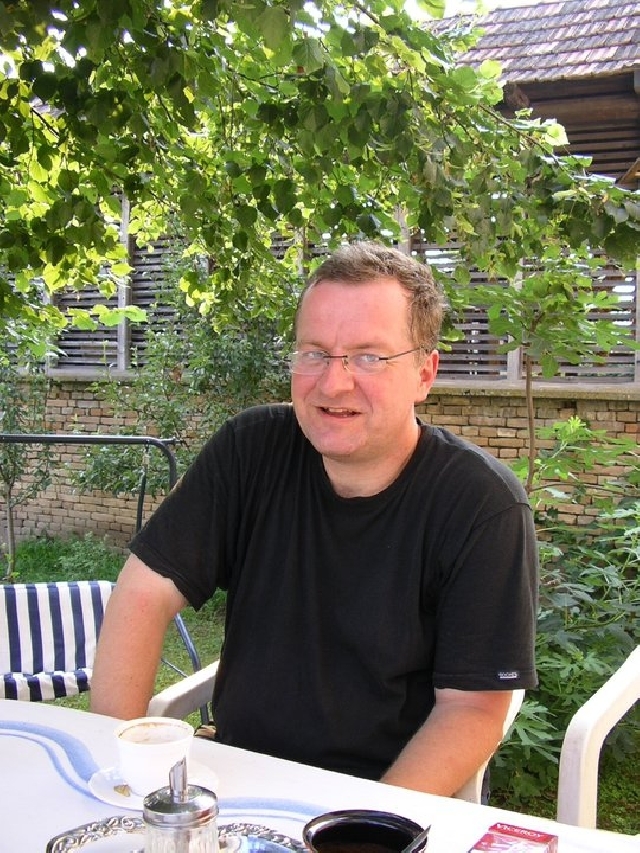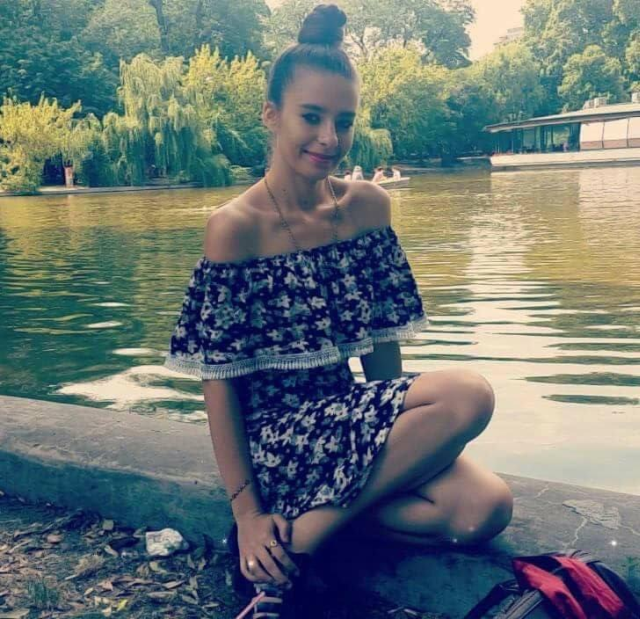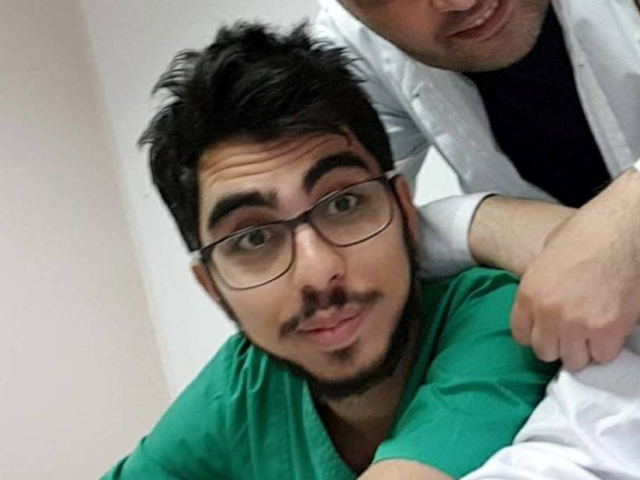Matthias Thesing
It’s chess that brought Matthias Thesing from northern Germany to Romania. He is actually an international master of that sport of the brain.
Warning: Trying to access array offset on null in /home/web/rri.ro/public/wp-content/themes/rri/template-parts/content.php on line 53

Warning: Trying to access array offset on null in /home/web/rri.ro/public/wp-content/themes/rri/template-parts/content.php on line 98
Roxana Vasile,
28.02.2015, 14:28
It’s chess that brought Matthias Thesing from northern Germany to Romania. He is actually an international master of that sport of the brain.
Matthias Thesing: ”I came to Romania for the first time in 1986, to take part in a chess tournament and I stayed in touch with the chess players. Then in the spring of 2008, a professor with the Faculty of Letters in Iasi, in the north-east, asked me if I would be interested to see what life was like at the university. I was hired by the Agronomy faculty as an associate lecturer. I taught German to the students who had to study Russian, French, English or German on an optional basis. I also taught classes at the Faculty of Letters for two years, from 2008 to 2010. Then, in the summer of 2010, they decided to cut state employees’ incomes by 25% and that also affected the foreigners who were working in the public sector. That’s how I came to Bucharest. My friends in Iasi were making fun of me, saying I got promoted to the Capital.“
Once he got to Bucharest, Matthias Thessing — who in his country studied Mathematics, Physics and Music — was employed by a private German school for two years. At present, he likes to think of himself as being a freelancer. He’s got teaching jobs in several institutions and also teaches German in private. At the same time, he has never ceased to take part in chess competitions, being signed up by a club in western Romania, “Muncitorul Resita.”
Matthias Thesing: ”To be honest with you, twenty years ago I was a bit envious, as here in Romania chess was not seen as a hobby, but more like a profession. But things have changed in Romania as well. As an international master, it’s hard to make a living only by playing chess. Many have become coaches and they can make money out of that.“
Matthias Thesing says life is not easy at all, yet he likes it in Romania.
Matthias Thesing: ”Salaries are too low. Life is fine, but you need to survive. I do not get money from Germany, like other foreigners who come to Romania. And if you have no choice other than to live on a budget, which you make here in Bucharest, that would only pay your rent and food. But it depends on what you want from life! It’s all clear that, from an economic perspective, conditions in Germany are better. But expenses are also higher there. I said to myself that if here all Romanians manage to survive, why couldn’t I? I like it in Romania, because I feel I’m closer to its culture.”
It’s music Matthias Thesing is interested in the most. He worships the late Romanian traditional music legend Maria Tanase, who was also known as the Charming Bird. He also likes the fiddle songs performed by Romica Puceanu, or traditional music performed by Petreus brothers. He even likes the manele, a musical genre that sprang up in the Rroma communities because, Matthias says, you can put up a fine dance to such tunes.
Matthias Thesing: ”Here’s what I say: Maria Tanase was my first great love in Romania. Time and again, as I graduated from a musical school and because I can also speak Romanian, I am invited as some sort of specialist in Romanian music. I’ve been to a conference in Vienna, I’ve also been to Chisinau, giving half-hour talks on Maria Tanase’s music.”
Yet Matthias Thesing’s musical competence goes beyond that. He has no problem speaking about folk music writer and performer Ada Milea, about Zdob si Zdub, the rock group from the Romanian-speaking Republic of Moldova, the very popular pop music vocalist Inna, about jazz vocalist Teodora Enache, and last but not the least, about the rock music legend group Phoenix, one of Romania’s most beloved rock groups.
For a German, Romania is a somehow exotic country — says Matthias Thesing, who, being attracted to our country, uttered an outright yes as an answer to the question if he had in mind to stay. Until retirement, and even longer!
SOUNDBITE V.M.: ”I have just started negotiations with a high school in Timisoara, in the west, to work there. So it would be easier for me to pay the rent. I hope to get a teaching job with subsidy from Germany, I’ve been dreaming of that all the time!”






























